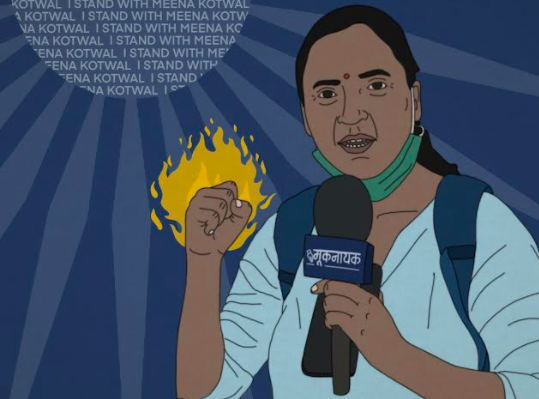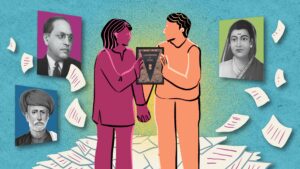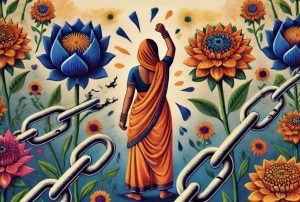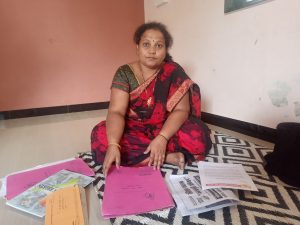In one of the calls, the abuser told Kotwal that her number was being publicly circulated on WhatsApp groups and social media pages with directions for others to threaten her en masse. The men demanded that she delete the video she had posted. When she refused, they threatened her with adverse consequences including physical harm to her as well as her family.
“They used lewd casteist and sexist slurs in the comments and calls to intimidate me. One of them went to the extent of flashing his private part on a video call,” Kotwal told Behanbox over the phone.
India adopted the Protection of Civil Rights (Anti-Untouchability) Act in 1955 and the SC/ST Prevention of Atrocities Act in 1989 that mandates criminal charges for casteist slurs and violence against individuals or groups. However, the Supreme Court of India ruled in November, 2020, that insulting remarks made to a person belonging to Scheduled Castes and the Scheduled Tribes within the four walls of the house with no witnesses does not amount to an offence.
“In most cases, it is nearly impossible to get the police to file a complaint under the Prevention of Atrocities Act. I have experienced this myself,” said Kotwal. In October 2021, she had filed a complaint against a Twitter user for caste-based hate speech. “Without public pressure and outrage over social media, it was impossible to get the FIR registered under the act.”
India continues to remain an unsafe space for journalists according to several global reports. In April 2021, India’s rank on the Press Freedom Index was 142 among 180 countries. The report states that the ruling Bharatiya Janata Party and radical right-wing Hindutva ideologues have created an unsafe environment for journalists who dare to speak or write on subjects that ‘annoy Hindutva followers’. Another report by Reporters Without Borders has called India among the ‘most dangerous countries for journalists’.
An experienced journalist who has worked with renowned media organisations including BBC Hindi, The Wire, National Dastak, Kotwal has been fearlessly chronicling the brutalisation of Dalit, Bahujan and Adivasi individuals, especially women. She was the first journalist to extensively report the gang rape of a nine year old Dalit girl in Delhi.
Kotwal has faced abuse, especially from right-wing Hindu outfits, previously too.
In November 2020, Kotwal had a narrow escape from mob lynching, while she was covering Prime Minister Narendra Modi’s rally ahead of the Bihar assembly elections. “I was speaking to people about education and employment when those present turned hostile. They had seen that I was covering the event for The Shudra and started using casteist pejoratives.”
“The country is unsafe for journalists who dare to speak against the establishment. Along with this, the fact that I am a woman who belongs to the Dalit community makes it worse for us,” said Kotwal.
As a journalist who reports extensively from several on-ground locations, Kotwal believes that such threats cannot be brushed off easily.
“ I want to make it clear that if anything happens to me or my family, Bajrang Dal and other Hindutva outfits are responsible for it”, she asserts.
She has repeatedly encountered online hate comments for her work exposing crimes against the marginalised communities and casteism within Indian society.
“People do not want to be exposed to the bitter and harsh realities. But that does not change the fact that caste is deeply entrenched in the minds of the people”, she said.
Caste based hate speech on social media platforms has been documented in this report by the International Dalit Solidarity Network, a non-governmental organisation that works to eliminate caste-based discrimination at a global level. The report states that constant caste abuse and inadequate safety measures by social media platforms that hold abusers accountable has left Dalit users under psychological distress. This has forced many Dalit women choose to anonymise their identities, according to the report.
These series of threats must be seen as a deliberate attempt to silence the voice of a Dalit woman, Kotwal told Behanbox.
“Dalit women journalists, especially those who are vocal, are rarely seen. Since they do not want this status-quo to change, they have resorted to intimidatory tactics,” she added.
Kotwal is disappointed by the lack of support from several quarters, especially from those who are vocal about hate crimes in India.
“Had it been a Savarna woman journalist, people would have come out on the streets. But in my case I think they are waiting for something to happen, so they can light a candle thereafter for the sake of it.”
The online intimidation faced by vocal journalists like Kotwal who belong to marginalised communties is one among a growing pattern of organised cyber sexual violence by individuals owing allegiance to Hindu right wing groups. Earlier this year, Muslim women had to face a similar systematically orchestrated intimidation campaign. Right-wing social media handles circulated phone numbers of Muslim women asking other Hindu men to ‘marry and treat Muslim women as public property’. Around the same time, images of influential Muslim women were used for online auction on an open-source code app called Sulli Deals, as Behanbox had reported earlier. Despite numerous complaints to the local police and the National Cyber Crime Registration Portal, no action has been taken in the case.
“They think it’s easy to target women, especially Dalit women. They think they can silence us by subjecting us to sexual harrasment and hate speech. But they don’t know that we are aware of our rights and will not get bogged down. We will fight them legally and constitutionally,” said Kotwal, who will soon file a legal complaint.





